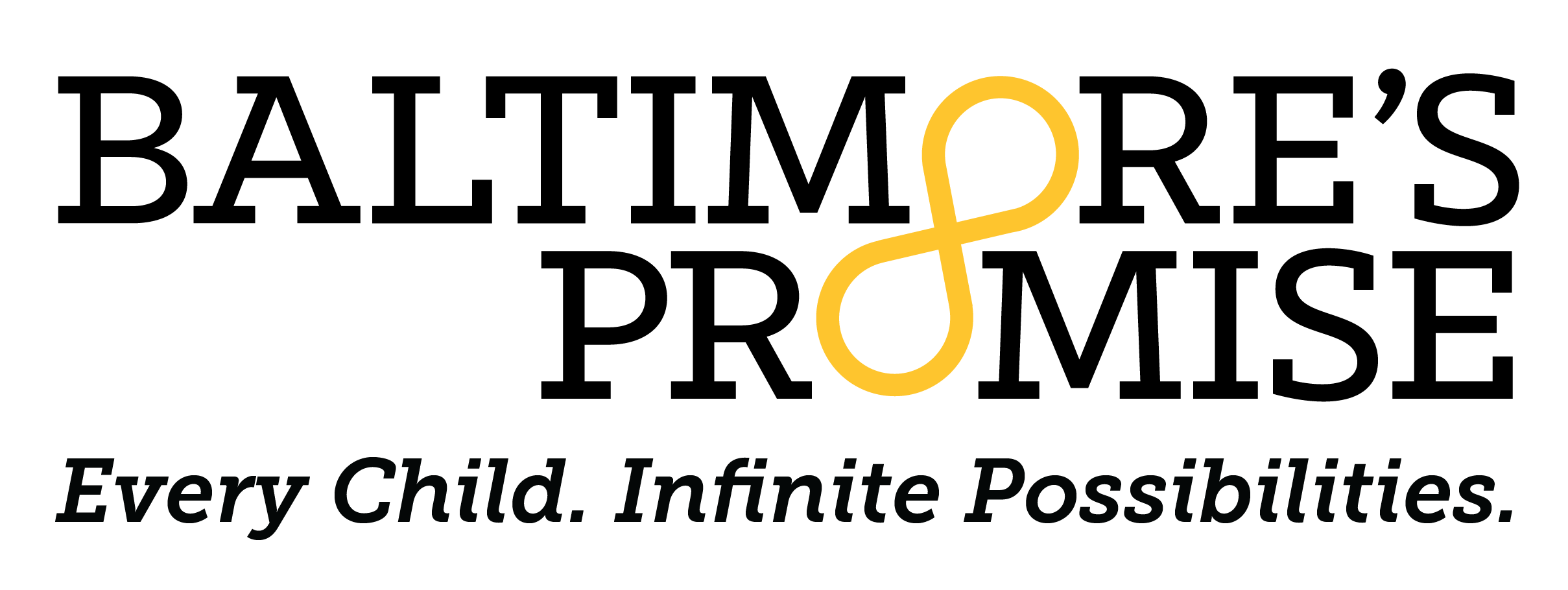Post-Secondary Pathways Report
Published March 2018
Gaining Traction after High School Graduation:
Overview
Baltimore’s Promise convened practitioners, partners, researchers and stakeholders around Baltimore for two years as a part of our citywide Career Readiness Work Group focused on improving high school graduation outcomes. The Career Readiness Work Group developed a research plan to help answer important questions about the trajectory of our students after graduation.
In this study, the first in a series of projects developed to better understand the needs of students and identify opportunities for collective action, we look at the educational and career trajectories of graduates in the Baltimore City Public Schools high school class of 2009. In summary, we find low rates of degree completion, a prevalence of annual earnings below family-supporting wages, gender- and race-based gaps in educational attainment and income, and a high rate of disconnected youth.
Baltimore’s Promise and collaborators looked at outcomes for Baltimore City Public Schools’ (City Schools) graduates from the Class of 2009. The analysis, conducted in the fall of 2017, by researchers at the Baltimore Education Research Consortium (BERC) and Institute for Education Policy at Johns Hopkins University, examines the paths of City Schools graduates to higher education or the workforce at two stages: in the fall after high school graduation and six years after graduation. The data used were from Baltimore City Public Schools and the Maryland Longitudinal Data System.
Key Findings
More than one in four graduates were opportunity youth, meaning they neither enrolled in college nor entered the workforce in the semester after graduating from high school.
Among opportunity youth, median earnings by 2015 were only around $11,000 per year. Only 10% of 2009 City Schools graduates earned a four-year degree.
There were large gaps in degree completion between African American/Black graduates and white graduates. Only 8% of African American men who graduated from City Schools had obtained a degree after six years, compared to 26% of non-African American male graduates.
The proportion of City Schools 2009 graduates who earned a living wage was low for all groups. Median annual income for all City Schools graduates – regardless of degree attainment – was low relative to peers nationwide. College graduates earned a median annual income around $19,300, while City Schools graduates who never entered college earned around $13,400 per year.
Pay gaps between graduates who did and did not obtain college degrees were especially steep for African American/Black men and all women.
If even 200 opportunity youth from the class of 2009 who remained disconnected from the workforce had been part of the workforce during those six years, they could have generated an additional $3.4 M in tax revenue to contribute to education and other public programs. Read more about the economic costs of disconnection here.
Download the full brief.
Taking Action to Create Better Opportunities for Baltimore City Youth
Grads2Careers – Training for Higher Paying Careers: Baltimore’s Promise, the Mayor’s Office of Employment Development, and Baltimore City Public Schools are partnering to offer occupational skills training to City Schools graduates in programs that offer industry-recognized certifications that put youth on the path toward earning family-supporting wages as well as opportunities and resources for higher education.
Read more about this effort here. The initiative’s official website is www.bmoreg2c.com.
In addition, we are working with partners throughout the city to identify and promote policies and programs that continuously and collectively improve opportunities for Baltimore City’s youth. Send us your ideas or feedback!
Learn more
Our research collaborators have released a series of briefs with additional information and findings on outcomes for the City Schools graduating class of 2009.
Read more about outcomes for the class of 2009 graduates from the Baltimore Education Research Consortium here.
Read more about the economic costs of disconnection from the Institute for Education Policy at Johns Hopkins University here.






